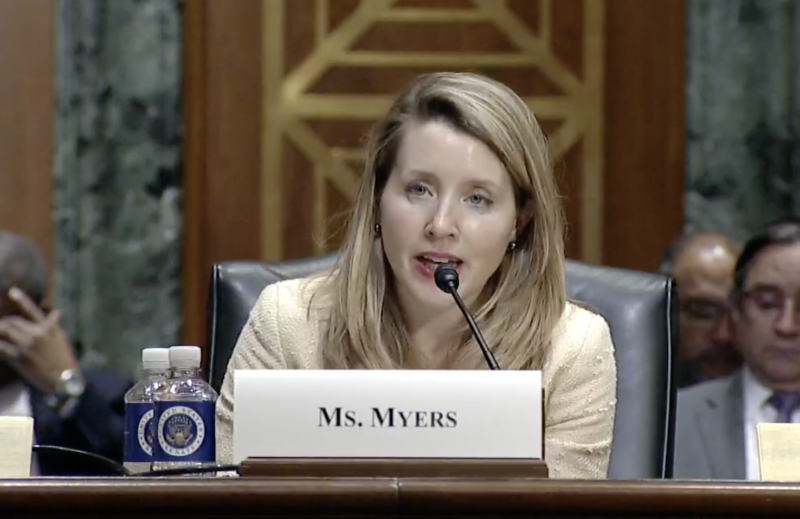The Politics Of Disaster Relief
After a 7.0 magnitude earthquake struck Haiti, the aftershock reached China in ways that few anticipated.The earthquake forced Chinese leaders to navigate the tricky politics of disaster relief.
Good afternoon. I would like to thank Chairman Carper, Ranking Member Cornyn, and the members of the Subcommittee for the opportunity to share my views on advancing economic cooperation for a stronger and more resilient Western Hemisphere.
As a specialist on China’s engagement with the region, I offer some thoughts today, not just on prospects for engaging more extensively within the hemisphere, but also on the ways in which U.S. prospects are shaped by China’s many efforts across the Americas.
I’d first of all note that this is a critical moment for expanded engagement.
Nearly every country in our region is facing similar obstacles in pursuit of economic recovery and future growth—educational setbacks, fiscal limitations, extreme weather events, historic migration flows, and wide-ranging other shared challenges. There is considerable need and justification for enhanced hemispheric cooperation to advance our many common objectives.
For the United States, there is also tremendous opportunity to promote not only our own industrial and diplomatic interests, but also economic progress across the hemisphere—especially by deepening our engagement in emerging sectors across the region, including those related to energy and digital transformation.
Targeted investment in these industries, and related value chain development, would do much to both advance U.S. competitiveness and hemispheric growth.
But if we are to engage in these and other areas, now is most certainly the time to do so.
Time is truly of the essence as China grows its technical outreach and economic presence in these and other industries.
In just a matter of years, through a series of targeted investments and subsidized offerings, China has established prominent—and even dominant—economic positions, including in energy generation and transmission, telecommunications, renewable energy, electromobility, and now, critical minerals.
The U.S. policy toward Latin America should not be a China policy—it should not be principally motivated by U.S. interest in competing with China in the region. Pursuing stronger economic ties within the hemisphere is a critical objective in its own right, with direct implications for the U.S. economy and regional security and stability.
However, our ability to be competitive in international markets and strategic industries requires understanding of China’s efforts and positioning in the Western Hemisphere—including in the Caribbean, which has been an outsize recipient of Chinese finance and other attention in recent years.
And with that in mind, I would offer that if we are serious about engaging economically within our region, and remaining competitive with China in the process:
Trade is fundamental. So much of China’s influence in the region is derived from its ever-expanding commercial partnerships, even when they are advancing economic re-primarization in Latin America. Ecuador signed a trade agreement with China just days ago. A Uruguayan trade deal and possible Central American agreements are also on the horizon. Even a focus on deepening existing US agreements---if not signing new ones---would be welcome at this juncture.
In pursuit of stronger ties, new private sector investment in the hemisphere, including through “nearshoring,” is of course helpful—even more so when the investment has strategic implications, such as concerns semiconductor supply.
But it’s also critical to simply maintain our presence in sectors where U.S. companies have been active for decades. Crafting incentives for U.S. and partner nation companies not just to engage anew, but also to stay the course in the region, will be of great consequence.
We also must look to add value in the hemisphere—including by helping to develop regional supply chains, as noted. This is what the region needs and wants—and is also among the very best ways for us to ensure strong and binding economic ties.
U.S. investment and trade in the hemisphere has historically been far more diversified than China’s. We have a strong record of adding value that can and should be expanded upon.
Doing more will require the removal of barriers to financial engagement—many of them administrative—and even opening up more channels for direct G2G involvement where needed.
Ensuring a prominent U.S. role within the hemisphere, and competitiveness with China, also, of course, requires sustained commitment to addressing our own economic challenges and societal needs. Robust commitments to improving U.S. domestic conditions will naturally boost competitiveness and generate prospects for broader and longer-term hemispheric cooperation.
U.S. companies must stay competitive, but so must the U.S. model, including in the eyes of our hemispheric partners.
After a 7.0 magnitude earthquake struck Haiti, the aftershock reached China in ways that few anticipated.The earthquake forced Chinese leaders to navigate the tricky politics of disaster relief.
At the Inter-American Dialogue, José Miguel Insulza described the events of September 30, in which Ecuadoran police brought the country to a standstill after they rioted and trapped President Rafael Correa in a Quito hospital for several hours.
The question remains if Mexico has achieved a degree of institutional development consistent with its participation in those organizations.
 US Senate Committee on Finance
US Senate Committee on Finance